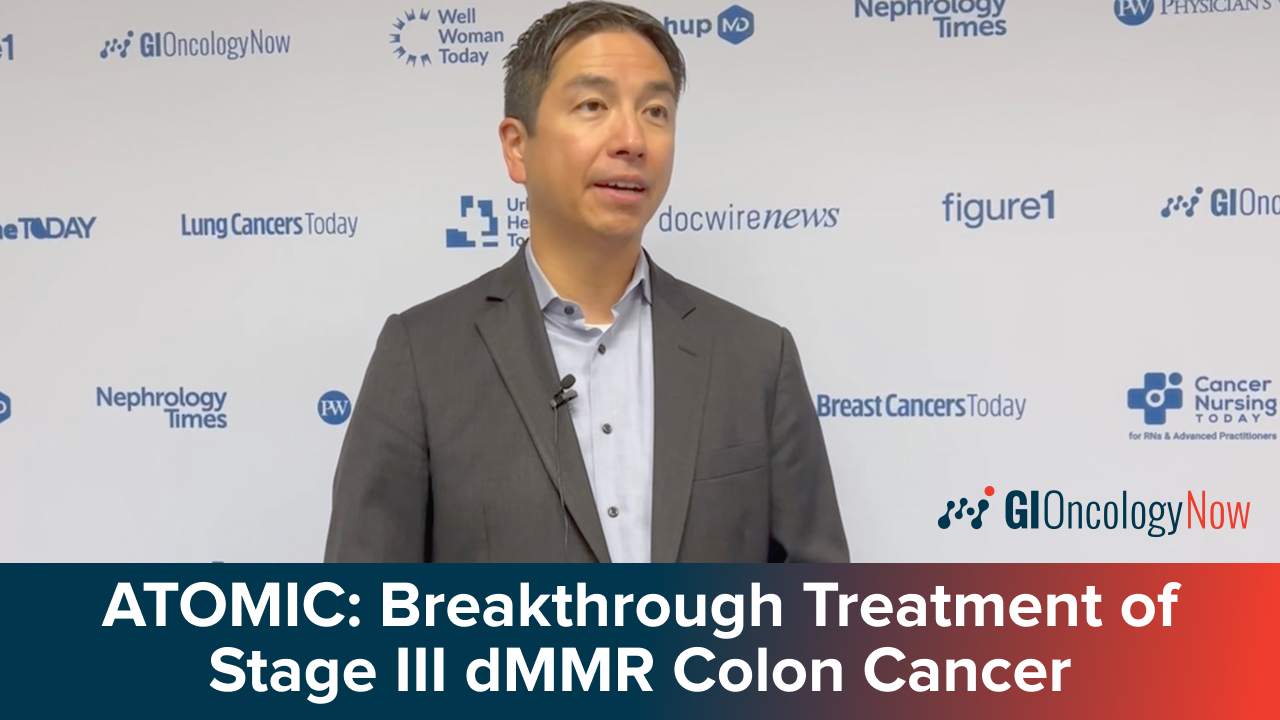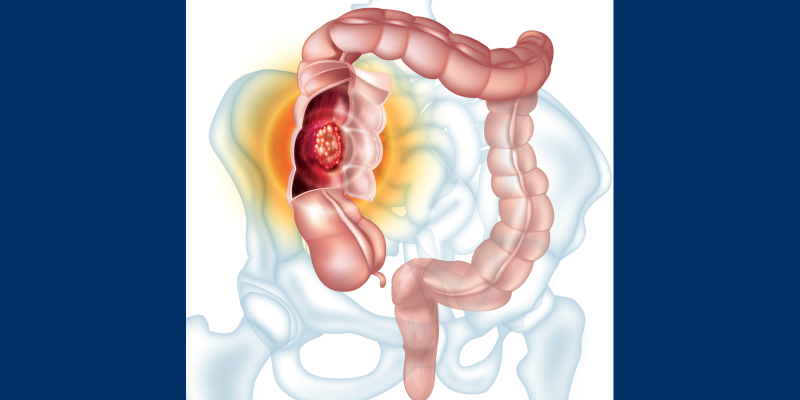
Colorectal Cancer
Advertisement
Dr. Weinberg explains why combining transcriptomic & genomic features can offer an advantage over prior biomarker ...
Professor Tie discusses DYNAMIC-III, a trial using ctDNA to guide chemo escalation in stage III colon cancer.
Dr. Lieu highlights the randomized trial that looked at atezo with the standard of care for stage III dMMR colon cancer.
The findings are considered practice changing and support EC+mFOLFOX6 as a new SOC for BRAF V600E-mutant mCRC.
The ATOMIC trial showed that adding atezo to mFOLFOX6 significantly improves DFS in stage III colon cancer and dMMR.
Long-term follow-up from KEYNOTE-016 explores pembrolizumab treatment in dMMR/MSI-H solid tumors in advanced CRC.
Sotorasib with panitumumab and FOLFIRI has shown promising long-term efficacy results in pretreated KRAS G12C–mutated ...
Dr. Christopher Lieu shares his top liver-directed therapies for metastatic colorectal cancer with liver involvement.
Dr. Christopher Lieu shares his list of top targeted therapies for metastatic colorectal cancer.
The DYNAMIC study began in 2015 to analyze the efficacy of ctDNA in guiding the use of adjuvant chemotherapy.
Dr. Alan Venook reflects on how his leadership roles have shaped his collaborative approach to cancer research and treatment.
Sotorasib plus panitumumab may prolong progression-free survival in patients with KRAS G12C mCRC.
Experts speak on the new face of CRC, the potential mechanisms for these trends, and how CRC screening programs should react.
Dr. Tie discusses the beneficial results seen with a ctDNA-guided approach, and touches on its role in future trials.
Dr. James Cleary discusses the use of HER2-directed therapies for the treatment of CRC.
Dr. Ashwin Somasundaram discusses the results of a recent phase 2 study of ipilimumab, nivolumab, and panitumumab for mCRC.
CheckMate-8HW remains in progress to determine secondary end points such as overall survival.
Low-dose aspirin halved recurrence in resected PIK3CA-mutated colorectal cancer, per data from the ALASCCA trial.
Dr. Michael Foote breaks down the CheckMate 8HW trial and supports dual immunotherapy as a first-line option in dMMR CRC.
Dr. Foote discusses the BREAKWATER trial and the impact of BRAF-targeted therapy in metastatic colorectal cancer.
Advertisement





















 © 2025 Mashup Media, LLC, a Formedics Property. All Rights Reserved.
© 2025 Mashup Media, LLC, a Formedics Property. All Rights Reserved.